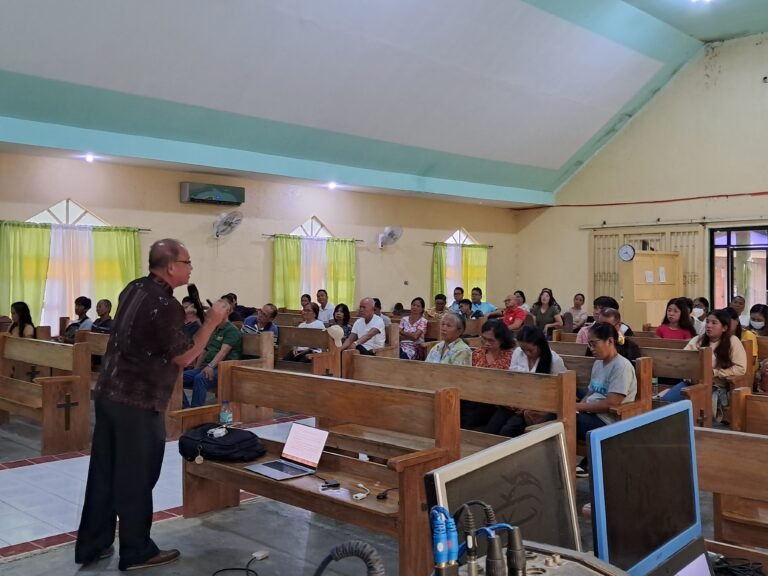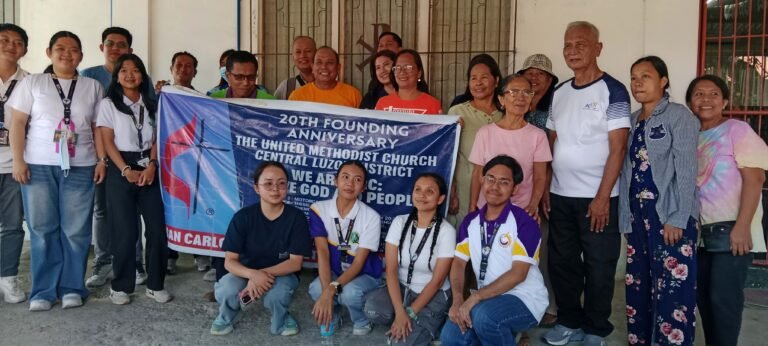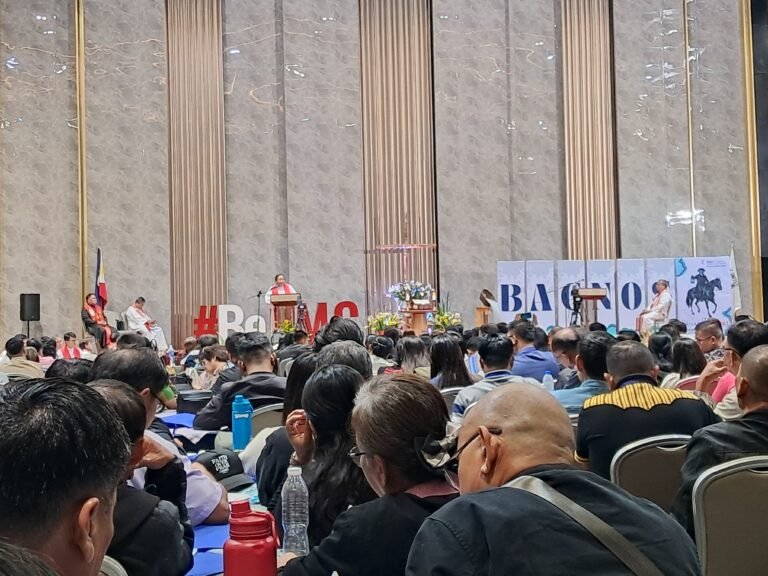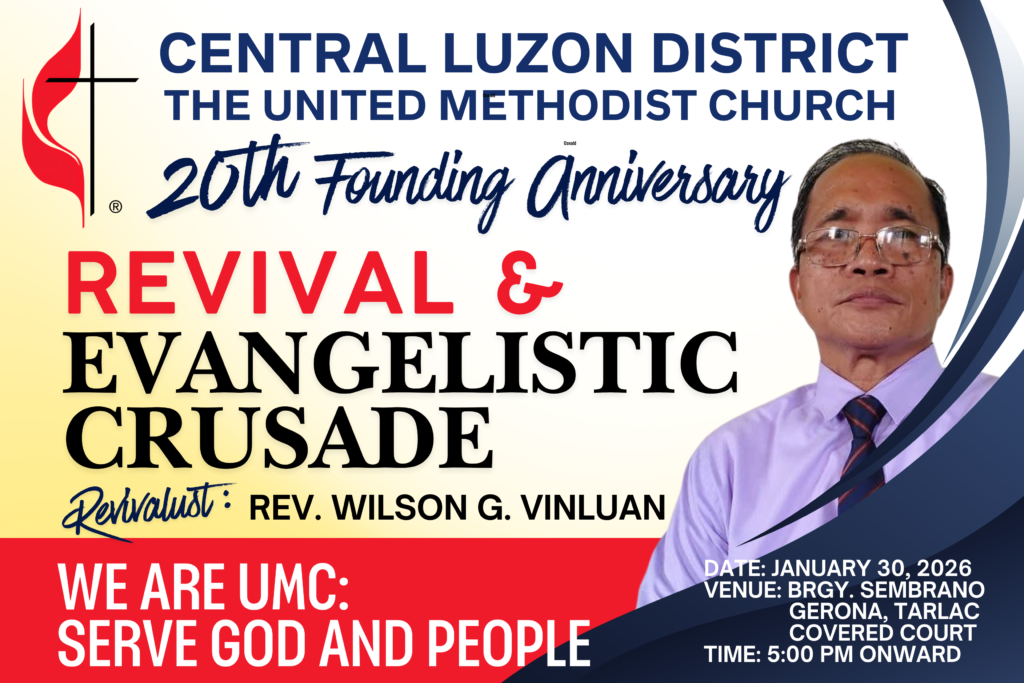
Understanding the Importance of Disaster Preparedness
Disaster preparedness is an essential component of community resilience, particularly for churches in Central Luzon, which is prone to natural calamities such as typhoons, earthquakes, and flooding. Recent events have demonstrated the devastating impacts of these disasters, leaving many communities grappling with loss and destruction. The role of the church, often viewed as a cornerstone of community support, becomes even more crucial during times of crisis. By establishing a solid disaster preparedness plan, churches can effectively address immediate needs while providing spiritual comfort and guidance to affected individuals and families.
The importance of having a prepared local church disaster team cannot be overstated. Such a team is instrumental in coordinating efforts to respond to emergencies, ensuring that necessary resources and support are mobilized quickly. This team can include volunteers from the congregation who are trained in basic emergency response, first aid, and resource management. By equipping members with the skills needed to respond appropriately, the church not only enhances its ability to serve the community effectively but also fosters a sense of unity and collective purpose among its members.
Theologically, being proactive in disaster preparedness resonates with the teachings of compassion and service to others. Many religious texts emphasize the importance of caring for those in need, and this imperative can extend to preparing for potential crises. Churches that prioritize disaster preparedness embody the calling to serve and protect their communities, thereby reinforcing their role as a refuge during tumultuous times. In understanding the significance of disaster preparedness, churches in Central Luzon ensure they are not only ready to respond to immediate needs but also positioned to assist in recovery efforts, ultimately contributing to the healing process of their communities.
Establishing a Local Church Disaster Team
The establishment of a local church disaster team is a crucial step for congregations in Central Luzon to enhance their disaster preparedness. This team should consist of selected members who possess various skills and knowledge to ensure comprehensive coverage of the diverse responsibilities involved in disaster response and management. Essential roles within the team may include a coordinator, who leads planning efforts, and specialists in first aid, logistics, communication, and spiritual support. By assigning specific roles, each member can concentrate on their area of expertise, which improves overall efficiency during crises.
Regular training sessions and drills are imperative for the team to remain effective and familiar with emergency protocols. These training programs should cover a broad spectrum of scenarios, including natural disasters such as typhoons and earthquakes, as well as other emergencies pertinent to the region. Through hands-on practice, team members can build confidence and refine their response strategies. Furthermore, conducting drills allows the congregation as a whole to engage in preparedness activities, fostering a culture of safety and resilience within the community.
Assessing and monitoring risks specific to the area is an ongoing responsibility for the disaster team. This involves gathering data on potential hazards, demographic vulnerabilities, and available resources, which will inform the team’s strategies and interventions. Regular assessments can help the team remain proactive, rather than reactive, by identifying emerging threats and adjusting plans accordingly.
Effective communication and coordination with local authorities and other organizations are vital during a disaster situation. Establishing strong partnerships with emergency services and non-governmental organizations enables the church to respond swiftly and efficiently. Regular meetings and information exchanges with these entities can enhance cooperation and build trust, ensuring that the local church disaster team operates cohesively within the larger emergency response framework.
Collective Action and Fund Allocation
In Central Luzon, the significance of collective action among churches cannot be overstated, especially regarding disaster preparedness. By collaborating, churches can enhance their capacity to respond effectively to natural disasters, which are increasingly frequent in the region. One of the primary strategies for fostering this collaboration is the allocation of combined resources through a dedicated funding mechanism. Establishing a common fund for disaster relief allows member churches to pool their financial contributions, ensuring that sufficient resources are available when a crisis strikes.
To further streamline their efforts, churches should share best practices related to disaster response. Regular meetings and workshops can serve as platforms for congregations to exchange ideas, discuss successful initiatives, and develop standardized protocols that can be employed during emergencies. Such collaborative learning can lead to the identification of effective training opportunities for both volunteers and staff, ensuring that the local community is well-prepared to handle emergencies.
Launching joint initiatives is another practical approach that can significantly enhance disaster preparedness. Annual fundraising events can be organized, allowing congregations to rally support from their members and the wider community. These events can take various forms, such as charity runs, bake sales, or benefit concerts. A successful fundraising campaign not only raises funds but also increases awareness about the importance of disaster preparedness within the congregation and the community at large.
When it comes to allocating the raised funds, prioritizing spending is crucial for maximizing impact during a disaster. This can include investing in essential supplies, emergency training programs, and communication tools. By strategically channeling financial resources toward these critical areas, churches can create a comprehensive safety net that benefits the entire community in times of need. Ultimately, a robust collaborative approach rooted in shared responsibilities ensures that the churches of Central Luzon are prepared and resilient in the face of adversity.
Mobilizing the Congregation and Community Support
The role of churches in disaster preparedness extends beyond their immediate congregations; it encompasses the wider community as well. To effectively mobilize both the congregation and the community, churches can implement various strategies aimed at fostering awareness and resilience in the face of potential calamities. Educational initiatives such as workshops and seminars can serve as fundamental tools to equip congregation members with essential skills in disaster readiness. These programs can cover a range of topics, from basic first aid to emergency evacuation procedures, thus empowering individuals to act decisively during crises.
Engaging church members through volunteer opportunities is another effective method to promote disaster preparedness. Organizing community drills or response teams can provide hands-on experience and build confidence among participants. Furthermore, these initiatives support the development of a supportive network within the church, enhancing emotional and physical preparedness among congregants. As church leaders, it is important to recognize that fostering a culture of readiness not only benefits individual members but also strengthens the fabric of the community.
To maximize impact, collaboration with local groups and government agencies can significantly enhance collective response efforts. By forming partnerships with organizations focused on disaster management, churches can contribute valuable resources and expertise. These collaborations may facilitate access to training sessions, resource sharing, and community awareness campaigns that promote safety and preparedness across demographics. Thus, churches can play a pivotal role in building resilience not only among their parishioners but also in the broader community.
In light of these efforts, it is imperative for churches to act as catalysts for change, inspiring and mobilizing their congregations to engage in disaster preparedness programs actively. Through these combined efforts, a strong culture of community resilience can be cultivated, ultimately enhancing the effectiveness of disaster response in Central Luzon.
About The Author
Discover more from COMMUNICATIONS
Subscribe to get the latest posts sent to your email.







